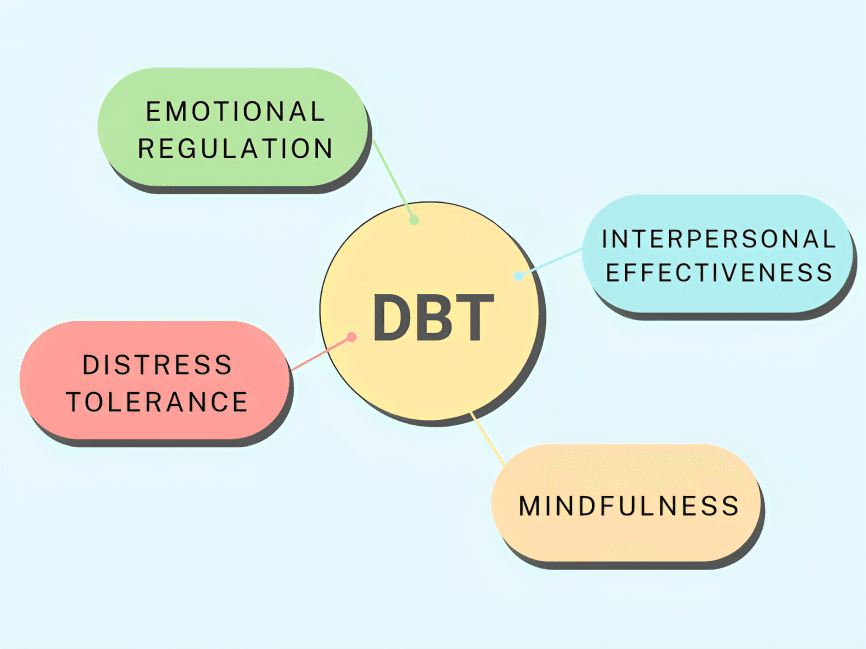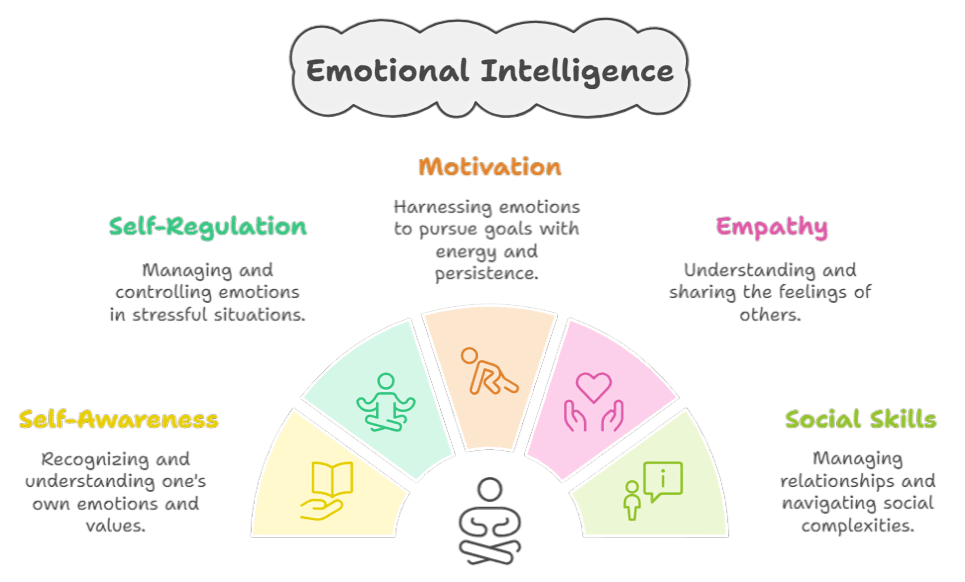
“
Therapy in addiction recovery plays a crucial role in helping individuals understand, manage, and overcome substance abuse. It offers emotional support, coping tools, and structured guidance for long-term healing. Therapy in addiction recovery not only promotes mental well-being but also builds resilience, making the recovery journey more sustainable and effective.1
1
”
Therapy helps individuals recognize personal addiction triggers and teaches them how to manage cravings, reducing the risk of relapse and creating healthier responses to stress or emotional discomfort. 1
Cognitive Behavioral Therapy (CBT) allows people to identify and replace harmful thinking patterns that lead to substance use, strengthening coping skills and promoting long-term emotional and behavioral stability. 2
Group therapy encourages connection with others facing similar struggles, reducing feelings of isolation while promoting mutual support, shared strategies, and accountability throughout the recovery journey. 3
Therapy supports individuals in healing from past trauma, helping them process painful memories that may contribute to addictive behaviors and strengthening their emotional resilience during recovery. 4

Dialectical Behavior Therapy combines acceptance and change techniques, helping individuals regulate intense emotions and develop mindfulness skills that reduce impulsive actions linked to substance abuse.
Motivational interviewing encourages people to explore their reasons for change, increasing internal motivation and commitment to recovery goals through open-ended dialogue and affirming their ability to succeed. 5
Therapy provides a nonjudgmental space where individuals can express thoughts and emotions freely, building self-awareness and understanding the underlying causes of their substance use. 6
Family therapy improves communication, resolves conflicts, and rebuilds trust, helping families become a supportive unit and reducing the risk of relapse caused by unresolved relational issues. 7
Through therapy, individuals set realistic, step-by-step recovery goals, improving their focus, accountability, and sense of purpose as they work toward rebuilding their lives. 8
Therapy helps address co-occurring mental health issues like anxiety and depression, which often fuel addiction and must be treated together for successful long-term recovery. 9

Therapy builds emotional intelligence by teaching people how to understand, express, and manage their emotions in healthy ways instead of relying on substances to cope.
Ongoing therapy after rehab reinforces progress, identifies new challenges, and provides continued support during the transition from structured treatment to independent living. 10
Therapy strengthens communication and relationship skills, helping individuals repair social connections damaged by addiction and fostering supportive environments for ongoing recovery. 11
Therapy helps people develop daily routines and structures that support sobriety, replacing chaotic patterns associated with addiction with stability and positive habits. 12
Through therapy, individuals explore their values, clarify what truly matters to them, and realign their choices with a lifestyle that supports sobriety and personal fulfillment. 13
Therapists guide clients through self-reflection exercises, helping them identify destructive habits and make intentional choices aligned with long-term recovery goals. 14
Therapy provides relapse education, helping individuals understand relapse as a process with warning signs, allowing early intervention and prevention through personalized action plans. 15

Expressive therapies, such as art or music therapy, can complement traditional methods by allowing individuals to process emotions creatively and find new ways to express themselves.
With therapist guidance, individuals develop boundaries and learn to distance themselves from toxic relationships or environments that threaten their sobriety. 16
Research consistently shows that individuals who participate in therapy as part of their addiction recovery plan experience higher rates of long-term sobriety and improved quality of life. 17


